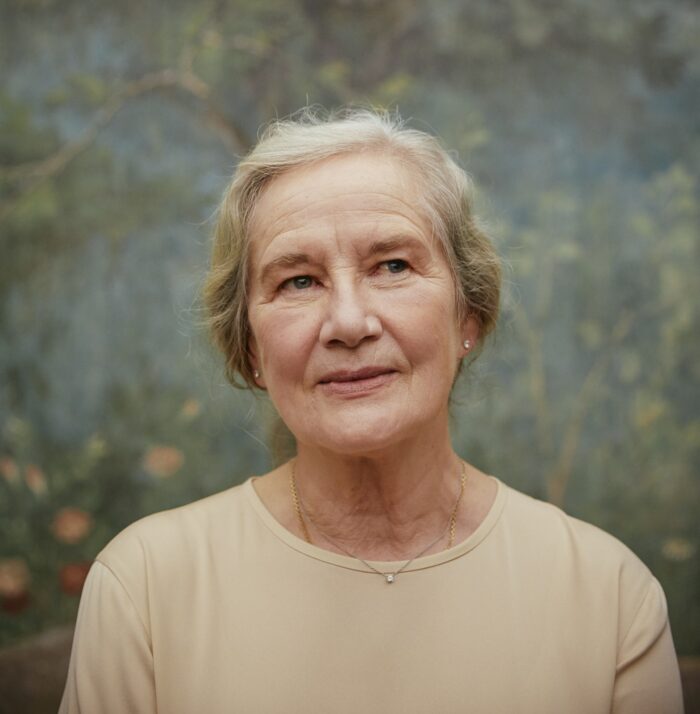Born into a middle-class Catholic family in Paris on March 11, 1951, Dominique Marie-Françoise Renée Varaigne pursued a career as a model for Glamour, Elle and Vogue while still a student. Her intense shots caught the attention of master director Robert Bresson, who cast the newcomer, by then known as Dominique Sanda, in the lead role of his A Gentle Woman (1969). Her enigmatic interpretation and unique ability to control complex psychological spheres with small gestures quickly made Sanda one of the most respected actresses in European art cinema.
The “French Garbo” set the tone in masterpieces that deconstructed the political history by the Italian masters, such as Vittorio De Sica’s The Garden of the Finzi-Continis (1970) and Bernardo Bertolucci’s The Conformist (1970) and 1900 (1976). Mauro Bolognini’s diabolical The Inheritance (1976) won her the Best Actress prize at Cannes, and in Liliana Cavani’s Nietzschean Beyond Good and Evil (1977), Sanda played Lou Salomé, the object of the philosopher’s tortured emotions.
The actress was equally at home in more entertaining international productions such as Philippe Labro’s Chandlerian Ed McBain adaptation Without Apparent Motive (1971), John Frankenheimer’s painful love play Story of a Love Story (1973), John Huston’s spy thriller The Mackintosh Man (1973), Jack Smight’s hard-hitting apocalyptic cult sci-fi epic Damnation Alley (1977) and Pierre Lary’s gleeful Hitchcock pastiche L’indiscretion (1982). She provided an intense counterpoint to the epic presence of men like Paul Newman, Max von Sydow, Robert De Niro, Gérard Depardieu, Jean-Louis Trintignant, Klaus Kinski, Charles Bronson, and Rutger Hauer.
As an arthouse favourite, her path led to both notable literary adaptations including Erste Liebe (Maximilian Schell, 1970), Steppenwolf (Fred Haines, 1974), The Wings of the Dove (Benoît Jacquot, 1981), I, the Worst of All (María Luisa Bemberg, 1990), as well as films of original auteurs such as Philippe Garrel and Marguerite Duras. Particular gems include Jacques Demy’s wonderful, sing-through “adult musical” A Room in Town (1982) and the erotic masquerade A Sweet Journey (Michel Deville, 1980), which grows into a kind of giggling minuet of memories and imaginary journeys.
Other notable Sanda directors include Damiano Damiani, Lina Wertmüller, Alexandre Astruc, Mathieu Kassovitz and Nicole Garcia, as well as Midnight Sun guests from previous editions such as Dino Risi, Edgardo Cozarinsky, Fernando E. Solanas, Gian Vittorio Baldi, Amos Gitai and Bertrand Bonello. A parallel career on the stage completes the range of her achievements.
Dominique Sanda’s natural radiance is an enigmatic combination of the mysterious femme fatale of classic American film noir and modern European women who are at ease with their desires and their bodies, dominating with their silence rather than their screams. The comparison with Greta Garbo is partly correct, but Sanda is more naturally compared to the Hawksian creatures interpreted by Lauren Bacall, who exude the same strength and sensitivity. Moreover, the Swedish lady’s smile was cold, while the French Sanda’s gaze, a crusade of vulnerability and betrayal, has a heart-melting warmth, the eternal mystery that the camera simply loves.
Fragile yet strong – sometimes a happy child of light, sometimes an ethereal inhabitant of shadows – Dominique Sanda is by any measure one of the finest actors of her generation.
Lauri Timonen
